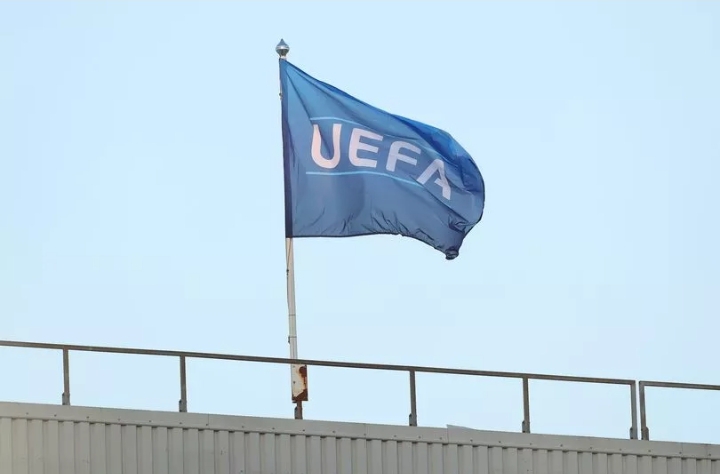Chelsea and RC Strasbourg Alsace could be denied entry into the UEFA Champions League even if they finish in qualifying positions this season. In May 2022, Clearlake Capital – owned by Behdad Eghbali and José E. Feliciano – joined forces with Todd Boehly to acquire Chelsea from Roman Abramovich.
UEFA Multi-Club Ownership Rules Explained Amid Chelsea and Strasbourg's Champions League Aspirations


The consortium purchased the west London club for £4.25 billion, making Chelsea the most expensive football club acquisition in history. Around a year later, BlueCo – the parent company created to oversee the investment – acquired a majority stake in Strasbourg.
Clearlake Capital and Boehly secured close to 100 per cent ownership of the French side for €75 million (£65 million). At the time of the purchase in June 2023, Strasbourg had narrowly avoided relegation from Ligue 1, finishing just five points above the drop zone.
Now, under the guidance of Liam Rosenior, Strasbourg are pushing for Champions League qualification. While Clearlake and Boehly have made significant strides across the Channel, their multi-club structure poses a regulatory challenge.
With that in mind, football.london has broken down UEFA’s multi-club ownership rules and how they could affect Chelsea’s European hopes.
What Are UEFA’s Multi-Club Ownership Rules?
In March 2025, UEFA introduced updated multi-club ownership regulations in preparation for the 2025/26 season. Article 5 of the Champions League rulebook outlines the governing body’s commitment to protecting the integrity of its competitions.
In essence, UEFA prohibits partnerships, alliances, or influence between clubs competing in the same competition if individuals hold significant power across both organisations. This includes owners, board members, sporting directors, and even coaching staff. The rules aim to ensure independence and avoid conflicts of interest.
UEFA states:
"The club must be able to prove, as at 1 March 2025, that the following multi-club ownership criteria were met, and must continue to comply with them until the end of the competition season."
The first of three main criteria states that no club participating in a UEFA competition may, directly or indirectly:
• Hold or trade in the securities or shares of another competing club;
• Be a member of another competing club;
• Be involved in the management, administration, or sporting performance of another competing club;
• Have any power in the management or sporting performance of another competing club.
The second criterion declares:
"No individual may be involved, directly or indirectly, in any capacity in the management, administration or sporting performance of more than one club in a UEFA competition."
The third criterion stipulates that no individual or legal entity may control or influence more than one participating club. Control or influence is defined as:
• Holding a majority of voting rights;
• Having the power to appoint or remove a majority of board members;
• Being a majority controller through agreements with other shareholders;
• Exercising decisive influence over the club’s decision-making processes.
What If Chelsea Breach UEFA’s Rules?
If both Chelsea and Strasbourg qualify for the Champions League but fail to comply with UEFA’s regulations, only one of the clubs would be allowed to enter the competition.
UEFA has outlined a prioritisation structure, used in descending order, to determine which club would be admitted:
1. The club that qualifies for the most prestigious competition (i.e., Champions League > Europa League > Conference League);
2. The club with the higher domestic league finish;
3. The club whose national association ranks higher on UEFA’s access list (coefficient table).
As it stands, ahead of their clash with Newcastle, Chelsea are fifth in the Premier League, while Strasbourg are sixth in Ligue 1. Fortunately for Chelsea, England currently tops the UEFA access list.
How Can Chelsea Comply with the Rules?
There are two possible avenues to ensure compliance with UEFA’s multi-club regulations:
1. Reducing Ownership Stake:
Either Clearlake Capital and Boehly would have to reduce their ownership stake in one of the clubs to avoid being classed as a controlling party.
2. Placing a Club in a Blind Trust:
The more commonly used method is placing one of the clubs into a blind trust, ensuring that the owners have no influence over its operations during European competitions.
Other Premier League Examples
Chelsea are not the first Premier League club to face such a dilemma. Brighton’s owner, Tony Bloom, reduced his stake in Belgian side Union Saint-Gilloise ahead of the 2023/24 Europa League season.
Likewise, Evangelos Marinakis diluted his influence over Nottingham Forest in preparation for Champions League qualification, while his Greek club, Olympiakos, also pursued a spot in the competition.
Sir Jim Ratcliffe also made similar arrangements by placing OGC Nice (France) and Lausanne-Sport (Switzerland) – both owned by INEOS – into an independent structure following his minority investment in Manchester United.
Manchester City’s parent company, City Football Group, moved Girona into a blind trust to comply with UEFA’s requirements.
What Happens Next for Chelsea and Strasbourg?
In short, BlueCo will need to ensure there is no overlap in influence or control between Chelsea and Strasbourg should both clubs qualify for the Champions League.
Given that both are part of long-term strategic projects, it is highly likely that one club – most probably Strasbourg – would be placed in a blind trust to meet UEFA's regulations if the scenario arises in the coming weeks.

 বাংলা
বাংলা  Spanish
Spanish  Arabic
Arabic  French
French  Chinese
Chinese 
